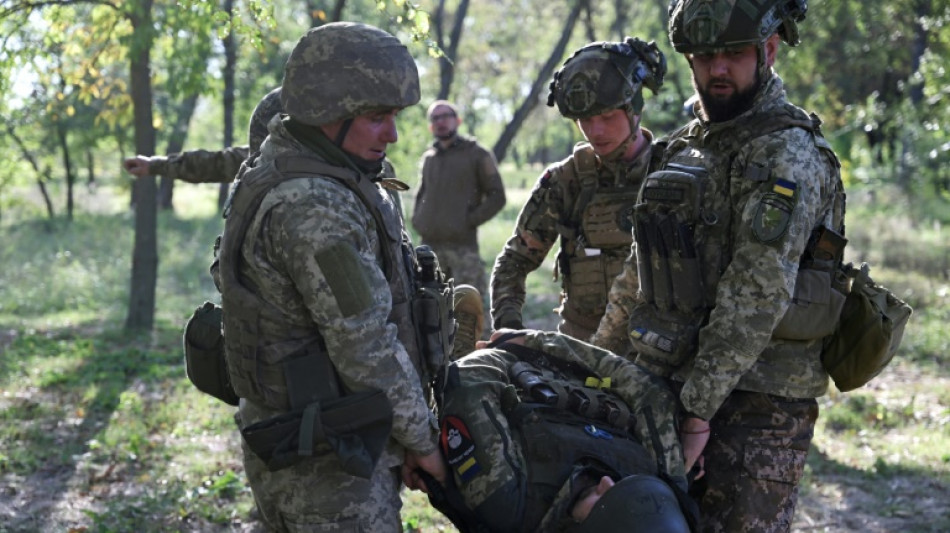
-
 Scandic Trust Group strengthens sales network with First Idea Consultant
Scandic Trust Group strengthens sales network with First Idea Consultant
-
Turmoil in tiaras at Miss Universe pageant in Thailand

-
 Probe into Thales defence group looking at Indonesian contract
Probe into Thales defence group looking at Indonesian contract
-
US to cancel flights as longest govt shutdown drags on

-
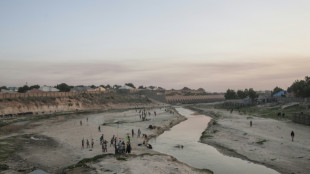 Home in Nigeria, ex-refugees find themselves in a war zone
Home in Nigeria, ex-refugees find themselves in a war zone
-
Doncic's Lakers hold off Wembanyama's Spurs, Blazers silence Thunder
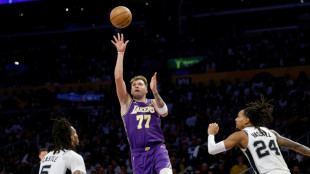
-
 For Turkey's LGBTQ community, draft law sparks existential alarm
For Turkey's LGBTQ community, draft law sparks existential alarm
-
Musk's $1 trillion pay package to face Tesla shareholder vote

-
 Tonga rugby league star out of intensive care after seizure
Tonga rugby league star out of intensive care after seizure
-
Argentine ex-president Kirchner goes on trial in new corruption case

-
 Dams, housing, pensions: Franco disinformation flourishes online
Dams, housing, pensions: Franco disinformation flourishes online
-
Endo returns as Japan look to build on Brazil win

-
 Franco captivates young Spaniards 50 years after death
Franco captivates young Spaniards 50 years after death
-
German steel industry girds for uncertain future

-
 IPL champions Bengaluru could be sold for 'as much as $2 billion'
IPL champions Bengaluru could be sold for 'as much as $2 billion'
-
Budget impasse threatens Belgium's ruling coalition

-
 New Zealand ex-top cop admits to having material showing child abuse, bestiality
New Zealand ex-top cop admits to having material showing child abuse, bestiality
-
BoE set for finely balanced pre-budget rate call

-
 Australian kingpin obtains shorter sentence over drug charge
Australian kingpin obtains shorter sentence over drug charge
-
Weatherald's unenviable Ashes task: fill giant hole at top left by Warner
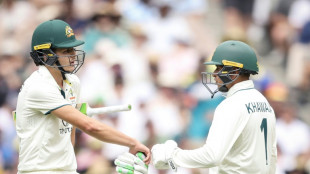
-
 Ovechkin first to score 900 NHL goals as Capitals beat Blues
Ovechkin first to score 900 NHL goals as Capitals beat Blues
-
On Mexico City's streets, vendors fight to make it to World Cup
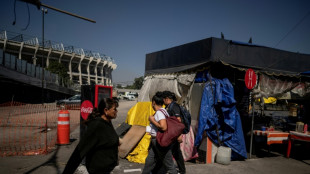
-
 Asian markets bounce from selloff as US jobs beat forecasts
Asian markets bounce from selloff as US jobs beat forecasts
-
Philippine death toll tops 140 as typhoon heads towards Vietnam

-
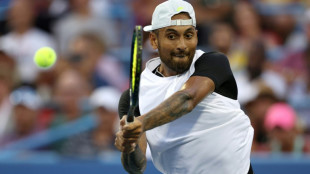 Kyrgios targets 'miracle' Australian Open return after knee improves
Kyrgios targets 'miracle' Australian Open return after knee improves
-
'AI president': Trump deepfakes glorify himself, trash rivals

-
 Belgium probes drone sightings after flights halted overnight
Belgium probes drone sightings after flights halted overnight
-
Five things to know about 'forest COP' host city Belem
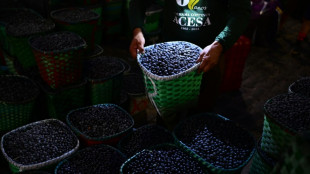
-
 World leaders to rally climate fight ahead of Amazon summit
World leaders to rally climate fight ahead of Amazon summit
-
Engine fell off US cargo plane before deadly crash: officials

-
 Mexican leader calls for tougher sexual harassment laws after attack
Mexican leader calls for tougher sexual harassment laws after attack
-
Meghan Markle set for big screen return: reports

-
 Japan deploys troops after wave of deadly bear attacks
Japan deploys troops after wave of deadly bear attacks
-
FIFA announce new peace prize to be awarded at World Cup draw in Washington

-
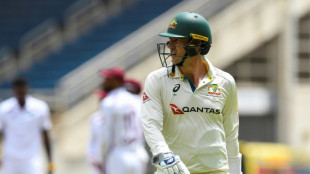 Australia's Cummins hints at return for second Ashes Test
Australia's Cummins hints at return for second Ashes Test
-
Boeing settles with one plaintiff in 737 MAX crash trial
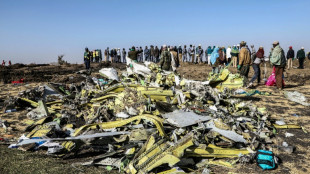
-
 Man City win as Inter stay perfect, Barca held in Champions League
Man City win as Inter stay perfect, Barca held in Champions League
-
French superstar DJ Snake wants new album to 'build bridges'

-
 Barca rescue draw at Club Brugge in six-goal thriller
Barca rescue draw at Club Brugge in six-goal thriller
-
Foden hits top form as Man City thrash Dortmund

-
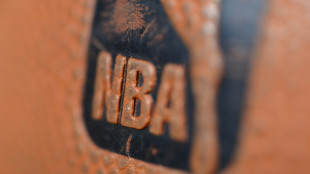 NBA officials brief Congress committee over gambling probe
NBA officials brief Congress committee over gambling probe
-
Inter beat Kairat Almaty to maintain Champions League perfection

-
 Newcastle sink Bilbao to extend Champions League winning run
Newcastle sink Bilbao to extend Champions League winning run
-
Wall Street stocks rebound after positive jobs data

-
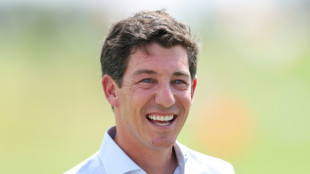 LPGA, European tour partner with Saudis for new Vegas event
LPGA, European tour partner with Saudis for new Vegas event
-
Eyes turn to space to feed power-hungry data centers

-
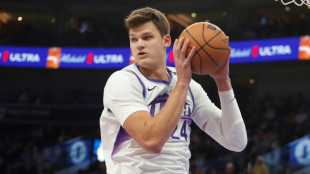 Jazz lose Kessler for season with shoulder injury
Jazz lose Kessler for season with shoulder injury
-
League scoring leader Messi among MLS Best XI squad

-
 MLS bans Suarez for Miami's winner-take-all playoff match
MLS bans Suarez for Miami's winner-take-all playoff match
-
McIlroy appreciates PGA of America apology for Ryder Cup abuse
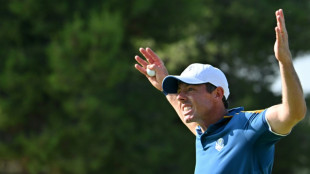

Ukrainian soldiers learn first aid near the front line
For soldiers fighting on Ukraine's front lines, a split second first aid decision can be the difference between life or death.
Whether learning to apply a tourniquet, wrap a bandage or carry a wounded person, regular basic medical training is an essential part of their skill set in the field.
"It's crucial training, because every soldier needs to know how to save his own life and that of others nearby," said Victor Pylypenko, a 36-year-old medic in the 72nd Ukrainian brigade.
According to analysts, at least tens of thousands of soldiers have been wounded and killed on both sides since Russia's invasion on Ukraine on February 24, 2022, although neither Kyiv nor Moscow have disclosed their losses.
Near the town of Kurakhove, situated 15 kilometres (nine miles) from the eastern front, some 15 soldiers from Pylypenko's unit gathered for a course delivered by intensive care nurse Mossy, an Australian volunteer.
Starting inside, and then moving to work in the undergrowth, the soldiers practiced applying tourniquets to an arm or leg to stop massive external bleeding, which can lead to death in a matter of minutes.
Every soldier is equipped with an individual first aid kit (IFAK), which includes one or two tourniquet straps.
Measuring roughly 70 centimetres (28 inches) and fitted with a twisting handle, the straps grip the limb above the wound and thus stop the bleeding.
"The most common wounds in the field are (shrapnel) wounds in the limbs," Pylypenko said.
The chest and back are also often hit, because "the bullet-proof vest doesn't fully protect you," he added.
- 'Fake tourniquets' -
"There are frequent cases of massive haemorrhaging, and tourniquets have really saved hundreds, if not thousands, of lives," said Pylypenko, adding that it was "essential" that soldiers knew how to use them correctly.
Both the way they are applied and the quality of the tourniquet determines their effectiveness.
"The government provides us with IFAKs, but they are not always good quality," said Pylypenko, lamenting "fake tourniquets that are deadly on the battlefield."
Ukrainian NGOs and combat unit nurses this summer criticised the lack of standardisation and poor quality of first aid equipment provided by the government.
Faced with backlash and after 19 months of war, Ukraine's defence ministry has only recently announced the creation of a medical department within its ranks.
"We are working with our Western partners on the possibility of a rapid decision to confirm the quality of tourniquets produced in Ukraine," deputy defence minister Natalia Kalmykova said in a TV interview.
During the training course, Mossy advised soldiers to check the origin of their equipment, noting that he had seen "very poor quality" tourniquets coming from China.
"I can't read the language on some" first aid items, he told AFP, using Pylypenko as a translator to communicate with the soldiers.
"Sometimes when we ask the guys to show this part, they point to something else," he said.
Although most of the soldiers had already undergone first aid training and applied it in combat, trainers say it is essential to practice and repeat the gestures regularly.
- Survived three times -
To illustrate his point, Mossy told the story of some soldiers who had placed a tourniquet on a wounded man, which then loosened in transit.
"They didn't think to check the tourniquet while they were transporting him. It came off and their friend died on the stretcher," he said.
"You have to continually revise (knowledge). It comes with training and experience, but unfortunately, these lessons are learned in blood," he added.
Vasyl, a 52-year-old sergeant, listened keenly to the medical training.
He had been wounded three times since the start of the war, including his right eye which appeared a little sunken.
He said that basic medical knowledge "enabled me to survive three times".
"The second year of the war is almost over. Those who are left have learned to survive," he said.
For 39-year-old Arkady, "in a stressful situation, with a lot of adrenaline, you don't always understand what you're doing".
"So it's important that you're constantly reminded of these (first aid) gestures, so you can save your life of someone else's," he said.
R.Fischer--VB




